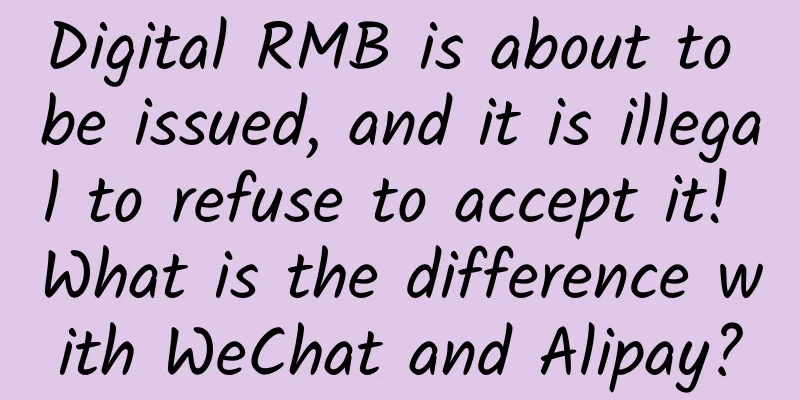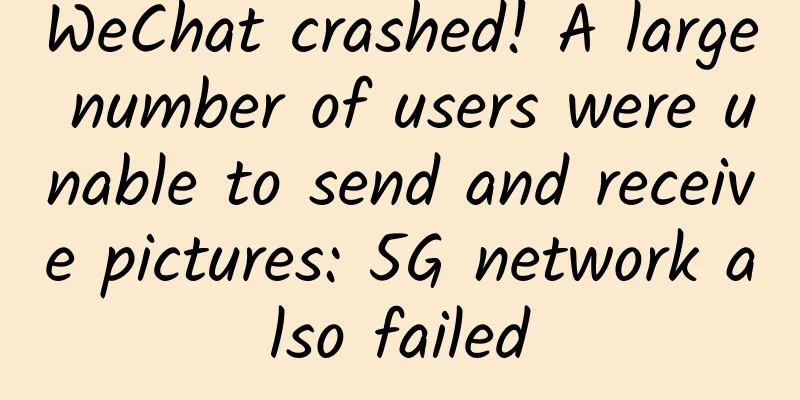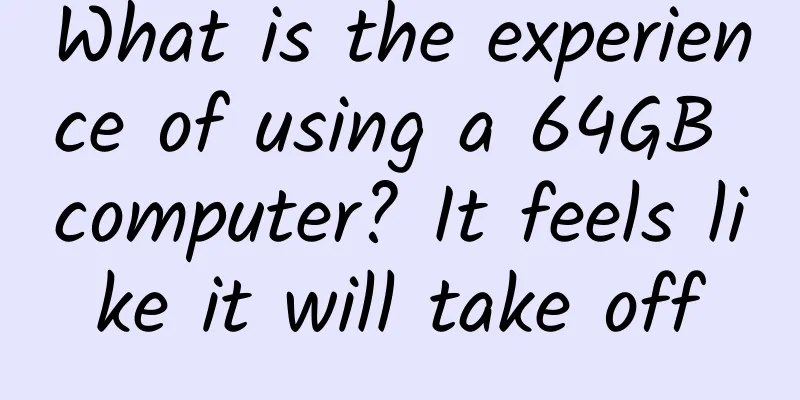Digital RMB is about to be issued, and it is illegal to refuse to accept it! What is the difference with WeChat and Alipay?

|
The People's Bank of China, or PBOC for short, is the issuing institution of RMB. Its every move is closely related to the lives of ordinary people. After six years of preparation and research and development, the PBOC will soon make a big move that will attract worldwide attention and affect every Chinese. What's the matter? The central bank is about to issue digital RMB, referred to as DCEP (Digital Currency Electronic Payment). Currently, internal closed pilot tests have begun in Shenzhen, Suzhou, Xiongan New Area, and Chengdu, and the day of nationwide rollout is just around the corner. China will become the first country in the world to issue digital currency with national sovereign credit guarantee. I think this is a landmark event that needs to be recorded in the history of human civilization. Digital currency is relative to paper currency. Money is no longer pieces of paper, but a series of invisible digital code information in mobile phones. Perhaps in the eyes of many people, what's so strange about this? Haven't we already entered the cashless era? We use Alipay and WeChat Pay every day, and we can't remember the last time we used cash. Yes, it is difficult for most ordinary people to distinguish the difference between mobile payment and digital currency. If you also know Bitcoin, you may be even more confused. Simply put, the money paid by Alipay and WeChat is not digital currency, while Bitcoin is digital currency, but it is fundamentally different from the digital RMB issued by the central bank that we are going to talk about today. Today I will explain to you the various twists and turns here and their impact on our future lives. This is really not a trivial matter. For the sake of brevity, let's make an agreement first. I will refer to all online payment methods such as Alipay and WeChat Pay as "WeChat Pay". Since WeChat Pay has almost eliminated cash, why does the central bank need to come up with a digital RMB? This is because WeChat Pay cannot completely eliminate cash. I will give two reasons: First, WeChat payment can only be used when there is a network, or at least one of the payee and payee must be online to complete the transaction. This is determined by the nature of WeChat payment. The money in WeChat payment is actually the deposit of our RMB in the WeChat account. Each payment is equivalent to completing an online transfer. Of course, it is necessary to have the support of the network to complete such a transfer process. Perhaps many people have the same experience as me. In places with poor network signals, such as parking lots, underground shopping malls, etc., if the network is not good and there is no cash, that is anxious. When buying things on the street, you often encounter some dead corners with poor signals. You can only hold your mobile phone and look for signals everywhere, which is very depressing. This problem can be solved by digital RMB. Second, WeChat payment is not anonymous. As long as you pay, there will be a record of the transfer, which will clearly record the time, how much money was spent, and who the payee and payee are. It is not only illegal transactions that have the need for anonymity. There are many reasonable and legal anonymous payment needs. For example, when young people buy adult products or pregnancy test sticks, they don’t want to buy them through WeChat payment and leave traces of purchase. At this time, the benefits of cash banknotes come. Take it, wear a mask and sunglasses, go to the store, pay cash and leave, and no trace will be left. This problem can also be solved by digital RMB. How can the two problems mentioned above be solved through digital RMB? Here we will give you some hard facts and explain the technical implementation principles of digital RMB. Let’s talk about the first offline payment issue. When the central bank started the development of the digital RMB, it set the goal of dual offline payment, that is, the payer and the payee do not need to be online. As long as they hold their phones close to each other, the digital RMB in my phone can be transferred to your phone. This is no different from paper money. How to achieve this? The key issue is how to solve the problem of illegal copying of information. The essence of digital RMB is nothing more than a string of digital information on a mobile phone. The payment process is actually to copy this string of digital information on your mobile phone to someone else's mobile phone, and then destroy this string of numbers on your own mobile phone. If there is a geek who plays with technology and modifies the program of the mobile phone to prevent the string of numbers from being destroyed, wouldn't it be possible to have endless money? And when not online, no one knows whose money on the mobile phone is the original money. In simple terms, the central bank uses two most important means to prevent illegal copying of information, which can be summarized as one hard and one soft, using both hard and soft methods. Hard means to ensure security through hardware. Major mobile phone manufacturers build a "chip card" into mobile phones according to the standards of the central bank, and guarantee the reliability of the chip card. Because it is hardware, the technical difficulty for hackers to crack it will be greatly increased. Moreover, mobile phone chips are real-name. If the security of the chip is found to be damaged, the public security department will investigate the cause and can also quickly deactivate the device. With this kind of "chip card" mobile phone, when both parties conduct transactions, payment will become much faster and simpler than the current QR code payment. Both parties only need to unlock their phones, and then bring the two phones close to each other, and the transaction can be completed with a beep. It is a bit like ETC or a bus card. The threshold for use by the elderly will also be greatly lowered. After talking about hard, let’s talk about soft. The so-called soft means using rules to ensure that it cannot be copied. Let's first think about how ordinary paper money transactions are like. You give 100 yuan to someone else. Because paper money has a physical entity, once you give it away, you no longer have it in your hand. But we all know that digital information is not like this. If you copy the files in your computer to others, you will not lose anything. Now, the central bank is trying to make the transfer of digital information the same as paper money. The method is as follows: when two people complete an offline transaction, the transaction information will be recorded on both mobile phones at the same time. As long as any of the mobile phones is connected to the Internet, the transaction information will be automatically uploaded to the central bank's server. At this time, the central bank's server will do one thing. The central bank's server will destroy the payer's digital RMB, and then issue a new digital RMB of the same amount to the payee. In this way, it is very similar to the transaction of physical paper money. For each transaction, it is guaranteed that there is only one unique digital RMB, which cannot be copied. The above is a technical principle of ensuring that the digital RMB will not be illegally copied, commonly known as double spending, that is, spending one money twice. So, is this a 100% guarantee? Of course, it is not absolute. I imagined an extreme situation, that is, a super hacker first cracked the chip card, and then copied a digital RMB to 10,000 mobile phones under his control at the same time. All mobile phones cannot be connected to the Internet. Then, these 10,000 mobile phones must trade with others at the same time. In this way, it is equivalent to this super hacker spending one money 10,000 times. However, I think this may be more difficult than directly counterfeiting paper RMB. Even paper RMB has the risk of being counterfeited. As long as the counterfeiting risk of digital RMB is no greater than that of paper currency, it is enough. It is impossible and unnecessary to pursue 100% absolute security. After talking about offline payment, let me talk about its anonymity. According to the information disclosed by the central bank. The process of issuing digital RMB from the central bank to ordinary people is very similar to the process of issuing paper RMB. The central bank first issues it to commercial banks, and then ordinary people exchange it with commercial banks. It's like you can go to an ATM to exchange the money in your account for paper money. These digital RMB will circulate on different people's mobile phones. Each circulation is equivalent to destroying the original and generating new digital RMB. Therefore, except for the central bank, no other institution can track the whereabouts of a digital RMB, because in essence, once the digital RMB is exchanged, it is equivalent to destruction. However, the central bank knows who holds each sum of money. Therefore, the anonymity of the digital RMB is not 100% completely anonymous, but only the central bank can check it. In this way, a balance is achieved between the public's reasonable demand for anonymity and the fight against illegal transactions. Digital RMB is related to the lives of each of us because it has an important attribute called "legal compensation", which means the legality of the law and the compensation of the payment. According to public information from the central bank, the legal status of digital RMB is completely equivalent to that of paper RMB. According to Article 3 of the General Provisions of the "Regulations on the Administration of Renminbi of the People's Republic of China": All public and private debts within the territory of the People's Republic of China shall be paid in RMB, and no unit or individual may refuse to accept it. That is to say, when the digital RMB is officially launched to the public, it will be the legal obligation of every citizen to accept it, and no merchant can refuse to accept it. In contrast, as long as the merchant is willing, he is allowed to refuse WeChat payment. Moreover, by then, all online payment platforms, whether Alipay, WeChat Pay, UnionPay Cloud QuickPass, etc., all these platforms must support the circulation of digital RMB, which is guaranteed by law. To put it in financial terms, the digital RMB is M0, and the money in our WeChat Pay is M1 or M2. Their status is different, and their significance in financial activities is also very different. To sum up in one sentence: the era of completely bidding farewell to paper RMB is really not far away. Whether you like it or not, we need to embrace this change. |
<<: May 30 pays tribute to science and technology workers. Do you know their brilliant achievements?
>>: Why are airplane windows round?
Recommend
It's "weight loss season" again! Qin Hao's weight loss diet is exposed. Have you found a scientific way to lose weight?
Can ordinary people imitate Qin Hao's weight ...
How does "China's sexiest steamed buns" lock in the broth? There are many details behind traditional delicacies
Many traditional delicacies have unique flavors a...
New Oriental subway advertisement copywriting failed: Can children’s words be free?
Yu Minhong’s New Oriental has recently gotten int...
When other departments shirk responsibility, how should operations take the blame?
Catch up on hot topics when they come, fill in th...
Toyota develops new permanent magnets for electric vehicles to reduce reliance on rare earths
According to foreign media reports, Japanese auto...
Poincare's Special Theory of Relativity Part 1: Discovery of the Lorentz Group
|Author: Jin Xiaofeng (Department of Physics, Fud...
Detailed explanation of the characteristics of information flow promotion channels such as Toutiao and Weibo!
If we want to do information flow promotion , cha...
If you only have 5 seconds, can your copy capture the user?
The world is so busy, no one will waste one more ...
Why does heated salt water turn into crystals, but heated sugar water turns into syrup?
This is a very interesting question, involving th...
Facing future air combat, the U.S. Air Force promises to deploy "loyal wingman" to build manned and unmanned system collaboration
The U.S. Air Force (USAF) is ready to move beyond...
Are the 2022 Auspicious Culture gold and silver commemorative coins worth collecting? How much is a set? Attached is the official website reservation entrance!
On May 20, many financial institutions began to t...
930,000 years ago, human ancestors were on the verge of extinction? Chinese scientists conduct the first "census" of ancient humans
As a person living in today's society, are yo...
Book Search Master v16.14 Massive resources are here_Taoduoduo
【Software Description】 Book Search Master is a po...
iOS 15 has 7 new features that older iPhones can't use
However, some of the best new features of iOS 15 ...
The products exposed on 315 are really deadly if they are fake! Don’t take it lightly!
A type of glass called fireproof glass was expose...









